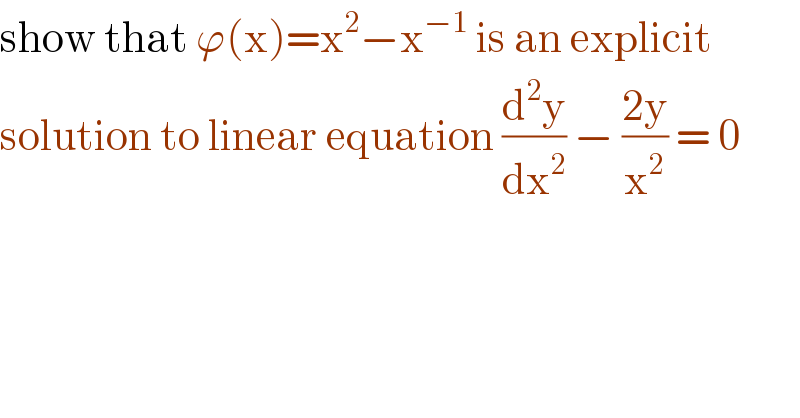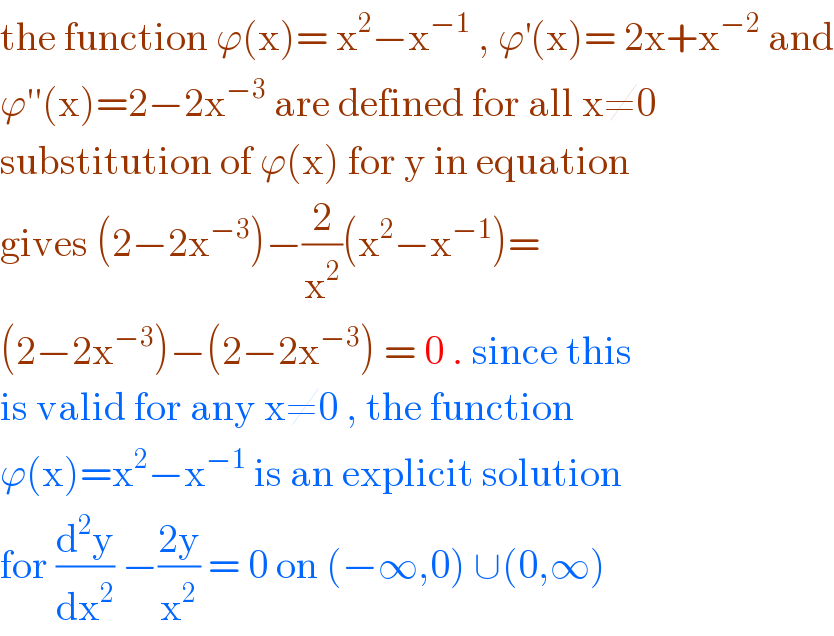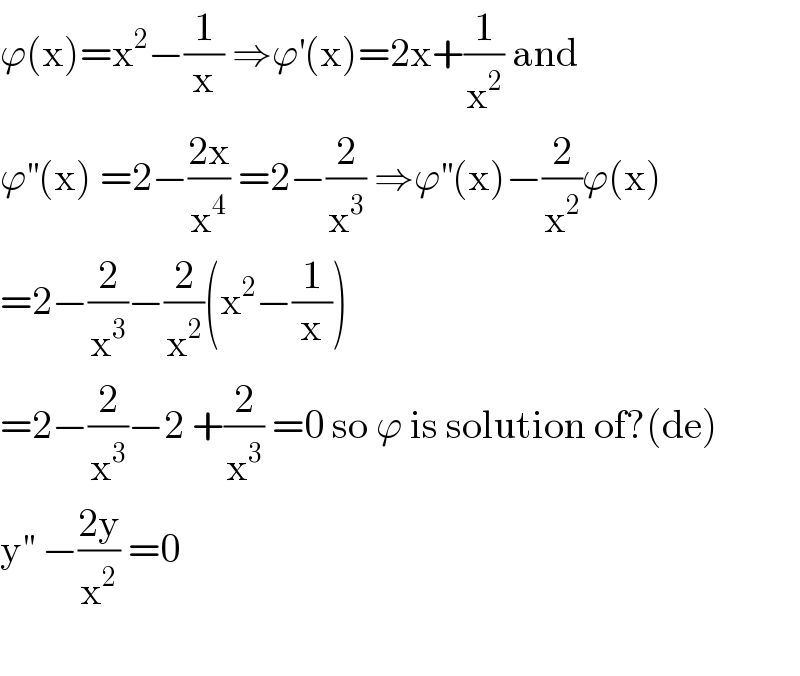
Question and Answers Forum
Previous in Differential Equation Next in Differential Equation
Question Number 98367 by bobhans last updated on 13/Jun/20

Commented by john santu last updated on 13/Jun/20

Commented by bobhans last updated on 13/Jun/20

Answered by abdomathmax last updated on 13/Jun/20

